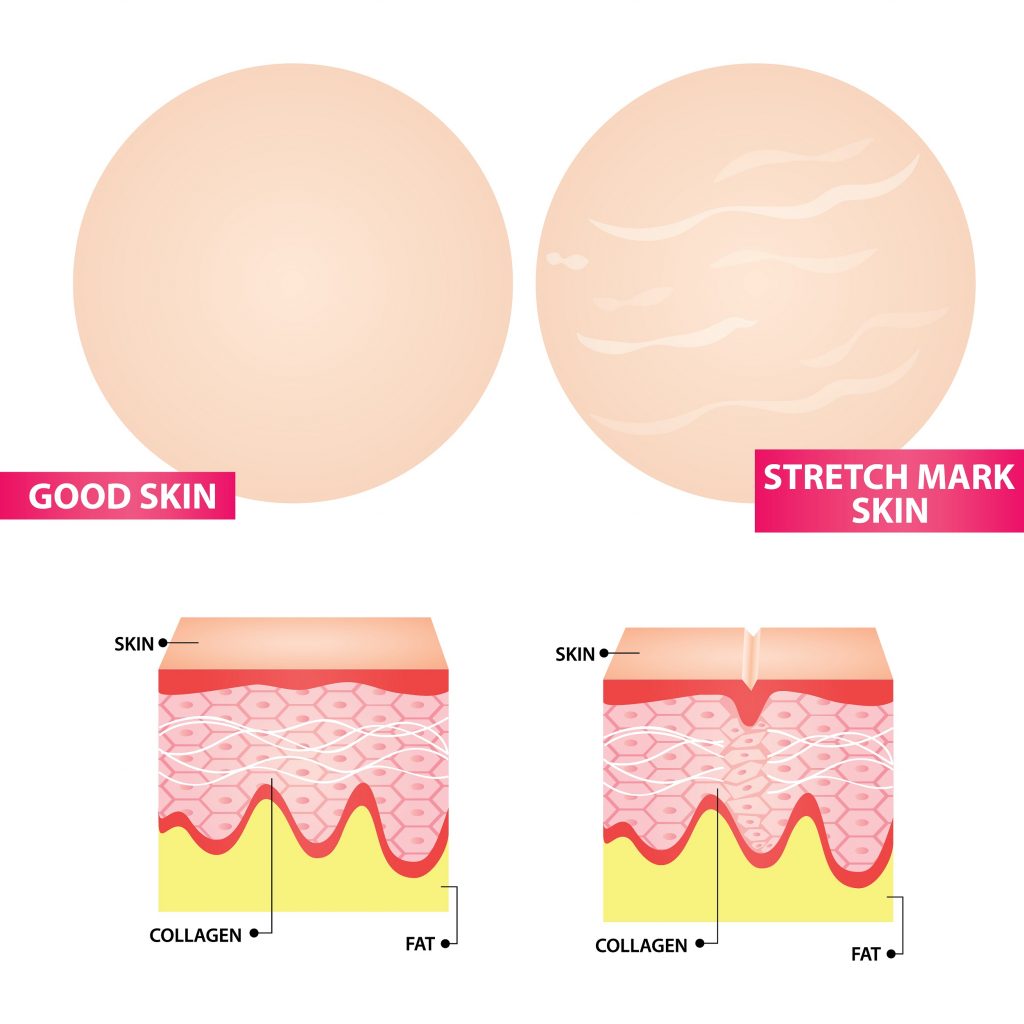During pregnancy, the skin becomes very sensitive. You can feel every scar or skin damage even more due to the increased sensitivity of the nervous system. During pregnancy, you can not use certain substances and cosmetic procedures. This is because there are hormonal changes in your body that you cannot take control of during pregnancy. That’s why sufficient knowledge of how to take proper care over your skin in this important time is nearly crucial! Check what to take proper care for pregnant skin and how to look and feel beautiful throughout those whole intensive nine months.
How to care for pregnant skin?
The skin during pregnancy changes radically and becomes very sensitive and dry. This happens because of too high estrogen level, which makes the sebaceous glands work slower. Thus, the skin smoothes, but the protective lipid layer of the epidermis becomes much thinner. Therefore, it is not able to keep the necessary amount of water or protect the skin against external factors.
The effect is red, sensitive and dry skin. There are a few important rules to keep in mind for sensitive and dry skin during pregnancy. Avoid ordinary soaps for washing the body, because it removes the natural, protective layer of the skin. Do not use chlorinated water - chlorine harms the skin, so wash water before boiling so that chlorine evaporates. Do not rub the skin with a towel, just move it gently over the body.
Also, avoid thermal shock - if you wash in warm water, do not rinse your body with cold water. Also applies to outdoor exits from heated air to the cold one (for example in the case of climatisation).
Care of pregnant skin requires the use of preparations for sensitive skin. They should contain as little active substances, dyes, fragrances and preservatives as possible.

Instead, they must contain anti-inflammatory substances, as well as soothing and calming ingredients for thermal water, allantoin, chamomile extract, and herbal extracts preparations. The day cream must also contain sunscreen. Every morning, wash your face with micellar fluid instead of using water and wash your makeup with milk. Perform an enzymatic peeling regularly. For daily care, use a gel and lotion for sensitive skin or baby oil.
There are also many discolourations on the skin during pregnancy. They are brown or yellow darkening around the eyes, on the cheeks, forehead and on the bridge of the nose. Chloasma - this is a condition during pregnancy that causes discolouration. Hyperpigmentation occurs under the influence of progesterone and estrogen and affects melanin cells in the skin. Therefore, during pregnancy, it’s better to avoid sunlight, which will only increase the visibility of discolouration.
Also, use sunscreen creams in your daily care. Hyperpigmentation begins to disappear after delivery when hormone levels stabilize. If you have acne-prone skin, know that acne lesions can get worse during pregnancy. Consult a dermatologist who will choose creams and medicines that do not threaten the developing baby.
Skincare during pregnancy - what substances should be avoided?
Proper care for pregnant skin is also based on the knowledge of how individual cosmetics work. Pregnant women should avoid some of the ingredients contained in them. These are, for example, phthalates, which are components of hairspray, nail polish, mousses and hair shampoos, deodorants, perfumes. They have a detrimental effect on the development of the baby as well as the older child.
For example, these substances have a feminizing effect on the sex glands in boys whose mothers have been exposed to these compounds during pregnancy, which in later life results in reduced spermatogenesis. Girls around the age of 8 may have secondary sexual characteristics.
Other compounds that are harmful to the developing baby can be retinoids, substances found in creams that fight the signs of ageing. Even though there is no accurate research on the adverse effects, it is recommended not to use them. Women should also not use salicylic acid, which is included in some medicinal creams, for example for acne condition.






